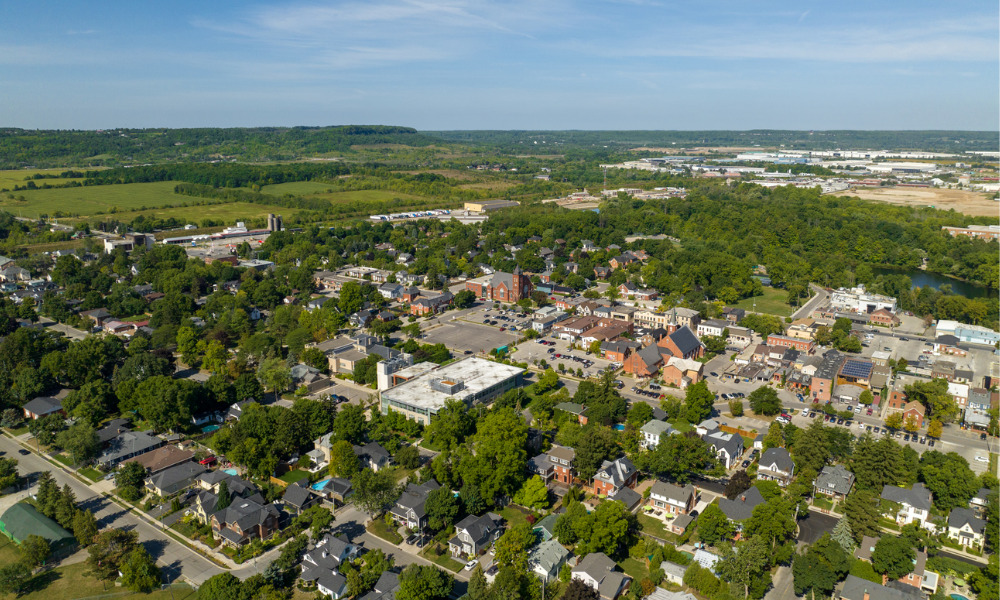Just a year ago, the town was one long stretch of corn field

The sleepy town of Milton became the hotbed of the mortgage crisis almost overnight with street upon street of newly constructed semis, condos, and town homes.
At any other time, this would have spelled the town’s progress. Now, however, Milton has arguably become “ground zero” of Canada’s mortgage crisis, with eight central bank rate hikes pulling repayments up and adding their weight to already-inflated household bills.
After a flurry of home development activity descended on the GTA’s Milton, Statcan found that it had the highest share (79%) of homeowner households with mortgages across Canada, where the national share of mortgaged households was 60%, and only 57% of homeowners in the capital city of Toronto were on home loans.
Less than a year ago, Milton was nothing more than kilometres of corn field, local councillor Colin Best told the Toronto Star. Now, it is a town of “a lot of highly mortgaged people” struggling to overcome the first years of their homeownership.
Milton is already starting to feel the symptoms of Canada’s mortgage crisis. Real estate investors have started to panic-sell properties in anticipation of the approaching mass-renewal period, while more residents avail of the local food bank.
RE/MAX realty specialists realtor Katherine Barnett told The Star that new builds such as semis and condos tended to attract young families and new Canadians who thought they could all afford homes in GTA back in the Bank of Canada’s record-low-rate environment because, at the time, “their money was almost free”.
Statcan numbers showed that the average Milton resident was just 35 years old. The town’s average household income was $138,800 a year, while its average home price was just over $1 million – down by a quarter from February 2022 – the Toronto Regional Real Estate Board reported.
Best also estimated that the town population was now at around 140,000, judging from the 2021 census population-count of 125,000, plus the average 5,000 residents who arrived and 1,500 babies who were delivered each year in Milton.
But a young population is also one especially vulnerable to increases in housing costs, the Toronto Star reported, as young, first-time homebuyers generally had less equity and more debt in their homes than other homeowner age groups.
Barnett said younger people with huge debts still went out of their way to purchase a home because a home had the appeal of being a “safe” buy. It allowed new families to immediately have security without the worry of having to replacing it for the next 10 years.
Now, however, the burden of paying off a mortgage is beginning to outweigh the need to own a home. After a 425-point bank rate increase, many are starting to dread their upcoming mortgage payments.
This is especially true of variable rates, which were as low as 1.5% in 2021 and could now top 5%, the Toronto Star reported. According to the Bank of Canada, variable mortgages made up around one-third of total outstanding mortgage debt across the country, up from about 20% before the onset of COVID-19.
Milton Halal Food Bank executive director Irshad Ahmad said he had witnessed a huge increase in demand for his food bank’s services since midyear 2022. Many of its ‘customers’ complained about rising rents and mortgage payments.
Ahmad said that demand for food bank services had already increased during the years of the pandemic, but the rising interest rates, higher food prices, and inflation had created a peak the likes of which he “[had] never seen before and could not even imagine”.
“People pay their mortgages or the rent, or they bring the groceries,” he told the Toronto Star. “They can’t do both.”
What do you think of the story? Let us know in the comments below.



